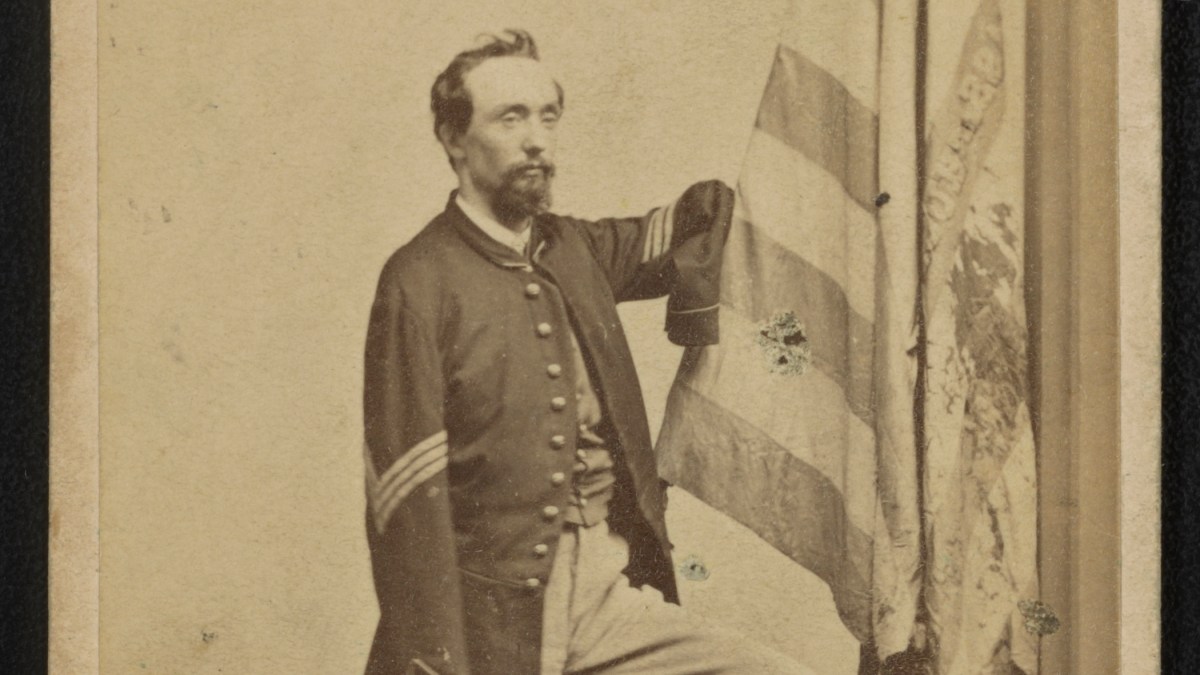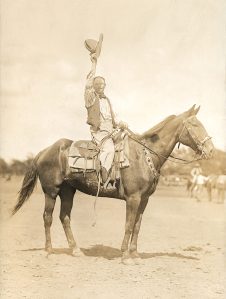On December 13, 1862, during the Battle of Fredericksburg, Sergeant Thomas Plunkett of the 21st Massachusetts Infantry lost both of his arms. The 22-year-old Irish immigrant had survived the Second Battle of Bull Run as well as Antietam a few months earlier, but his luck ran out on the expanse below Marye’s Heights. By the end of the day, more than 8,000 Union troops lay wounded or dead on the frozen ground.
Even some of the Confederate soldiers felt pity. “All that day,” one wrote, “we watched the fruitless charges with their fearful slaughter until we were sick at heart. I forgot they were enemies and only remembered that they were men, and it is hard to see in cold blood brave men die.”
Not far from the battlefield, Clara Barton watched Plunkett and his comrades forming for battle. She knew many of them—called them her “boys”—because she had grown up in the same county in Massachusetts. She wondered how many would survive even the next 10 minutes, having already seen more of the war than many soldiers themselves.
Plunkett knew what he was facing. For two hours, he watched waves of Union troops attempt to cross an open field in face of heavy fire from Rebel soldiers positioned four deep, secure behind a stone wall. In addition, the hills behind the wall were lined with cannons aimed at overlapping points so that every inch of open ground was covered.
There was no place to hide, and even if there had been, the military procedure of the day called for the troops to march in formation, elbow to elbow, at the regulation 160 steps per minute. They held their rifles in the “trail arms” position, grasping them by the middle of the stock. The army’s advance was carried out just as if the soldiers were drilling on a parade ground. When Confederate shells began carving gaps in their formations, the Federals halted and calmly dressed right, closing ranks. They did not proceed until their lines were straight once again.
As the number of dead and wounded mounted, the grass became slippery with their blood. But the Federals kept coming, stepping over the corpses. The 21st Massachusetts took its first casualty even before it formed when a Confederate shell decapitated Private Warren Webster. The men stepped around the convulsing headless body, trying not to look.
Color-Sergeant Joseph Collins soon took a hit. As the flag fell to the ground, Plunkett dropped his rifle and rushed forward to retrieve the colors—Rebel bullets piercing the flag and one going through his cap, just missing his head.
Three men at his side were killed when a shell exploded in their front. According to historian Patrick Browne, “A large piece of the shell ripped through Plunkett’s right arm near the shoulder, almost severing it. The shrapnel then struck him in the chest but glanced off a book he had placed in his waistcoat pocket. The impact left a long-lasting imprint on his chest matching the outline of the book. The book saved his life….Rebounding off the book, the same piece of shrapnel then struck his lower left arm and all but removed his left hand.”
When the smoke had cleared, Plunkett was still standing, holding the flag now stained with his blood. He knew, as they all did, that to drop the colors was to dishonor them. He anchored the base of the flagstaff on the ground against one foot, held the flag upright with the stump of his right arm and shouted, “Don’t let it fall, boys! Don’t let it fall!”
Private Bradley Olney grabbed the flag and carried it forward. Only then did Plunkett succumb to his injuries. He fell to the ground and was eventually carried back to a makeshift hospital in town.
Barton had seen him fall. She assisted the two surgeons who amputated Plunkett’s right arm below the shoulder and his left arm below the elbow. She continued to care for him and was at his bedside when a soldier from Plunkett’s regiment came to visit, to show him the flag he had carried. Barton later wrote that there was so much of Plunkett’s blood on the flag that it “literally obliterated the stripes.” But, she carefully noted, as long as Plunkett was carrying the flag, it had never touched the ground. When the visitor told her Plunkett had yelled, “Don’t let it fall,” after he was wounded, she took to calling him “the hero of four words.”
She cared for Plunkett as he recovered, and two weeks later he was pronounced fit enough to travel to Washington, D.C., for recuperation in a proper hospital. She was at the train station to see him off on that Christmas Day of 1862, along with the survivors of his regiment. They all stood at attention to honor him.
Four months later, Plunkett again needed Barton’s help, this time to try to get home. The Army physicians said he was well enough, and his brother had arrived from Massachusetts to escort him back. But the red tape of government bureaucracy would not allow him to leave.
Barton took him to the office of powerful Massachusetts Senator Henry Wilson, a future U.S. vice president. After she introduced Plunkett, Wilson welcomed him and automatically reached out to shake hands.
“You will pardon the sergeant for not offering you his hand,” she said, “He has none.”
“No hands!” Wilson said. “No hands! My God, where are they?”
She explained that Plunkett had no arms either, and revealed how he had lost them but had saved the flag. Wilson asked what he could do to help.
“He wants to go home,” she explained. He needed a formal furlough, but the Army insisted on a discharge, which would have prevented him from receiving his pay until his disabled veteran’s pension would begin.
Wilson helped resolve the dilemma. Plunkett finally went home and was able to receive his pension. In addition, newspapers throughout the North wrote about his heroism. Donations poured in, amounting to $4,000.
On March 30, 1866, Plunkett received the Medal of Honor for saving the flag at Fredericksburg. In 1869, the Commonwealth of Massachusetts gave him a job as a messenger at the state house. He married, had two children, and died in 1885 at the age of 45. At his funeral service, the flag he saved at Fredericksburg was placed beside his coffin, but it was not buried with him.
Today, that flag is kept in a climate-controlled vault in the basement of the Massachusetts State House in Boston. Patrick Browne, who was permitted to see the flag in 2012, wrote: “I will never forget when the colors that Plunkett had carried were laid out on the table in that darkened vault. The blood stains are still there.”
Duane Schultz is author of The Dahlgren Affair: Terror and Conspiracy in the Civil War and The Fate of War: Fredericksburg, 1862.






